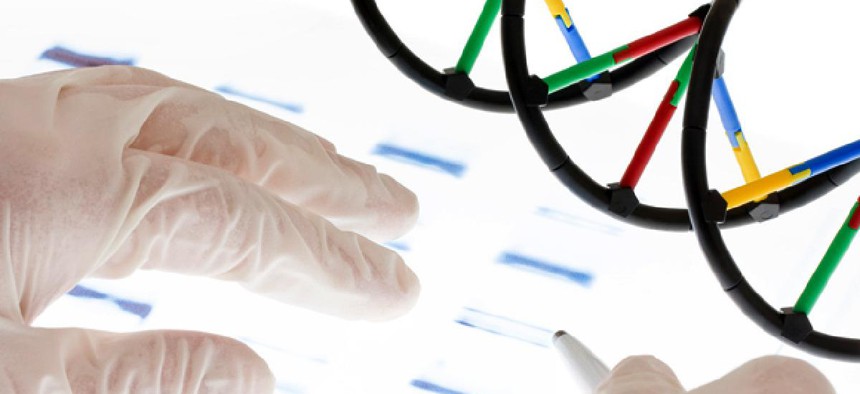Should we patent our DNA? A lesson from the history of radio

Shawn Hempel/Shutterstock.com
With a contentious case over patenting human DNA sequences back in court, we look to the history of radio for a creative approach to domain over the building blocks of people.
The issue of whether or not we can patent people -- or, at least, the genetic sequences that comprise them -- returned to federal court last week. This comes after two lower courts gave conflicting decisions: one striking down gene patents completely, followed by a higher court partially upholding them. Now an even higher appeals court is trying to sort things out.
The question before the U.S. Court of Appeals for the Federal Circuit is whether a company, university, or individual can patent sequences of DNA. These are the codes that influence everything from disease risk to the color of your eyes. Are these lines sub-microscopic Ts, Cs, Gs, and As coiled inside of our cells naturally occurring and therefore unpatentable?
On the "let's patent" side is Myriad Genetics, which claims patents on several genes that are associated with an increased risk for breast cancer. The health-care company is supported by most of the bio-pharma industry. On the opposing side are the American Civil Liberties Union, several research institutions and individual researchers, and the Obama administration (which filed a friend-of-the-court brief supporting the anti-patent position).
At stake are thousands of patents already issued over the past 20 years by the U.S. Patent and Trademark Office. Biomed companies insist that patents are vital to developing new drugs and diagnostic tests. Without owning genes associated with disease and other traits, they say, no one will invest the millions needed to create new products.
Read the full story at The Atlantic.
Read the full story at The Atlantic.
(Image via Shawn Hempel/Shutterstock.com)
NEXT STORY: Which IT Certifications Pay the Most?





